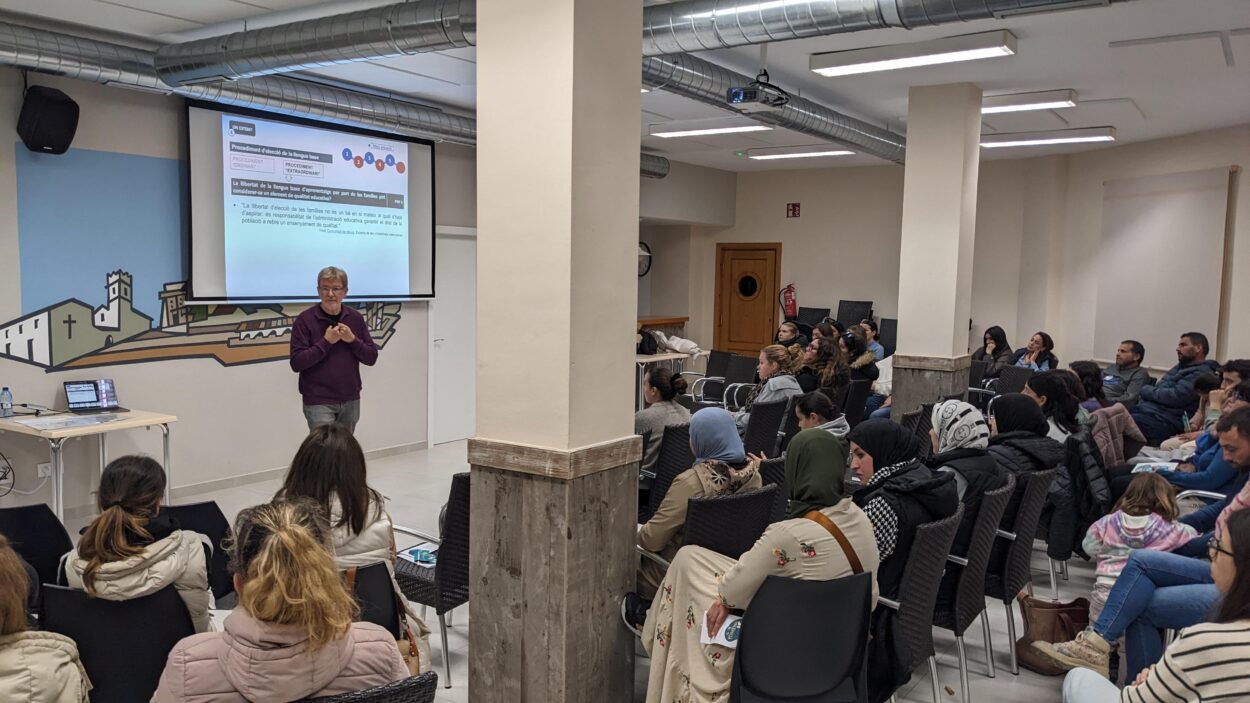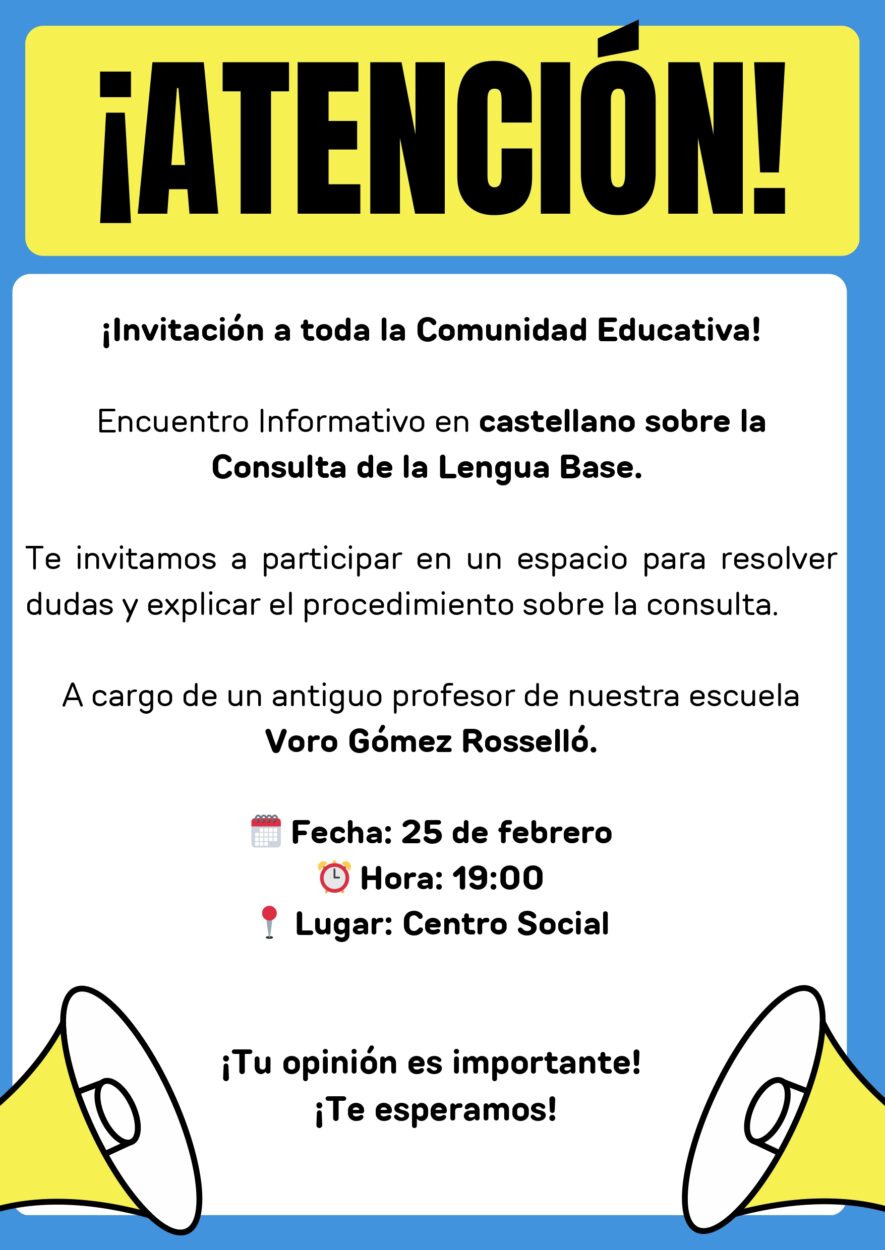
The plenary session of Benitatxell’s Council has approved by majority (with the 7 votes in favour of the Més Benitatxell government team; one vote in favour, one abstention and one against from REDcv Benitatxell, and the vote against from the Partido Popular) a motion presented by the Councillor for Education in defence of Valencian and against the consultation promoted by the Conselleria of Education of the Generalitat Valenciana on the vehicular language in public educational centres.
The motion denounces that this measure promotes linguistic conflict, since it places the debate on the choice between Valencian and Spanish instead of promoting programmes that allow a balanced competence between the official languages, and represents a threat to the survival of Valencian, as well as a violation of linguistic and educational rights.
Last June 27th, 2024, the Generalitat’s Law 1/2024 was approved, which regulates educational freedom and its objective is to give families the possibility of choosing between Valencian and Spanish as the vehicular language for their children.
As the motion reflects, El Poble Nou de Benitatxell, a historically Valencian-speaking municipality, now faces an unfavourable situation for Valencian given its idiosyncrasies. The municipality has a growing population, where more than 50% of its inhabitants are of foreign origin. This diversity is an asset, but it is also a challenge for the preservation of the local language and culture.
Thus, as the councillor of Education, Jorge Pascual, defended, ‘in view of the imminent vote on the language to be used in schools, it is essential that the Council takes measures to promote teaching in Valencian, thus guaranteeing a comprehensive and competent education for the new generations’. Pascual outlined in several points the benefits of studying in Valencian, which ‘go beyond the simple acquisition of a language’:
The motion concludes, among other things, to urge the Conselleria of Education, Culture, Universities and Employment to suspend the consultation and to open a process of dialogue with the educational community and to consider the contributions of the scientific community.
The mayor, Miguel Ángel García, for his part, has branded as a ‘fallacy’ the slogan of ‘freedom of choice’ coined by the PP Valencian government, since, as he claimed, ‘just by the fact that in a class where there is only one classroom, a simple majority chooses one language or another, it is already depriving those families who have not chosen the predominant language of that freedom of choice’.
He also defended the current trilingual system, which teaches subjects in Valencian, Spanish and English in equal proportions. ‘Children are sponges, and the current law allows them not only to learn three languages, but also to open new neuronal and learning paths’. And he warned that ‘this strategy tries to divert the debate and divide people. It makes no sense at this stage to reopen a political war over language, when the current system had the majority consensus of the entire educational community. Peace had been created, the thirds had been respected, segregation had been avoided and Valencian had not been imposed over Spanish in an openly Valencianist autonomous government. What was wrong with this system with the same percentage of teaching hours per language?’
As spokesman for the Més Benitatxell Municipal Group and a teacher by profession, councillor Víctor Bisquert has explained the ‘organisational chaos’ that is being suffered these days at schools with this new measure, for which, he says, ‘the criteria of the educational community has not been taken into account at all’. In addition, he pointed out that ‘a division has been created to cover up aspects such as the fact that the teaching staff has been cut by almost 4,000 people or that sick leaves of less than 15 days are not being covered’. Therefore, he concluded, ‘the obligation of the public administration is to guarantee that all languages are known, especially minority languages such as Valencian’.
Talks on the law of educational freedom
Precisely last Tuesday evening, the Social Centre of El Poble Nou de Benitatxell hosted a talk organised by the AMPA of the CEIP Santa María Magdalena and the Town Hall on the law of educational freedom given by Jaume Fullana, former Director General of Educational Policy. In addition, next Tuesday February 25th, also at 7pm at the Social Centre, another meeting will be held in Spanish on the consultation of the base language, which will be given by the former teacher of the village school and former coordinator of the General Directorate of Educational Policy Voro Gomez.

